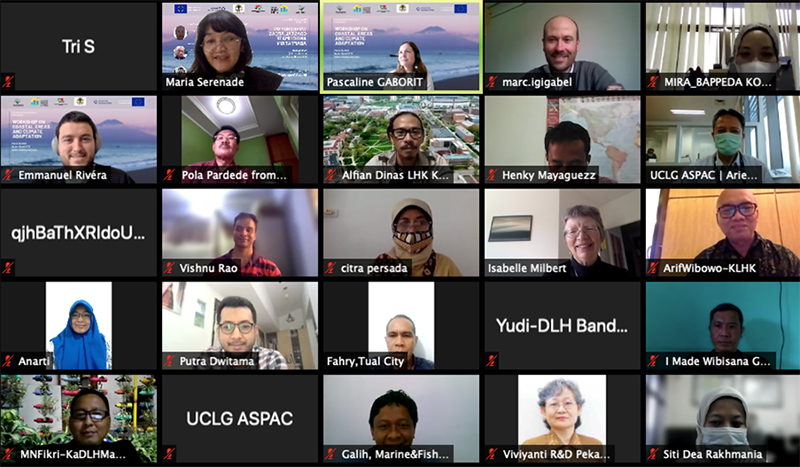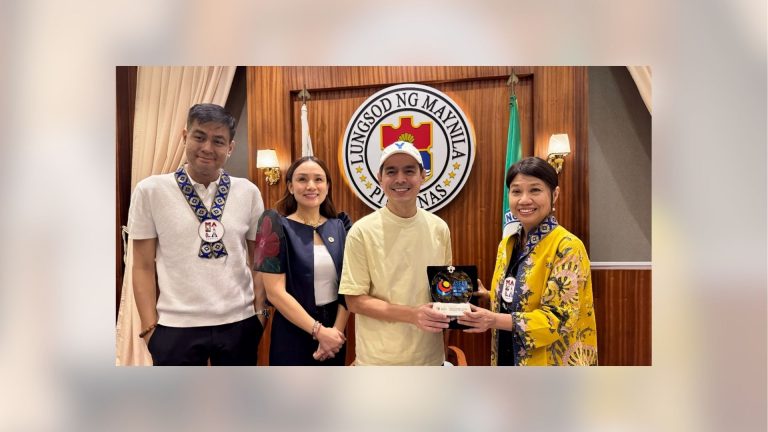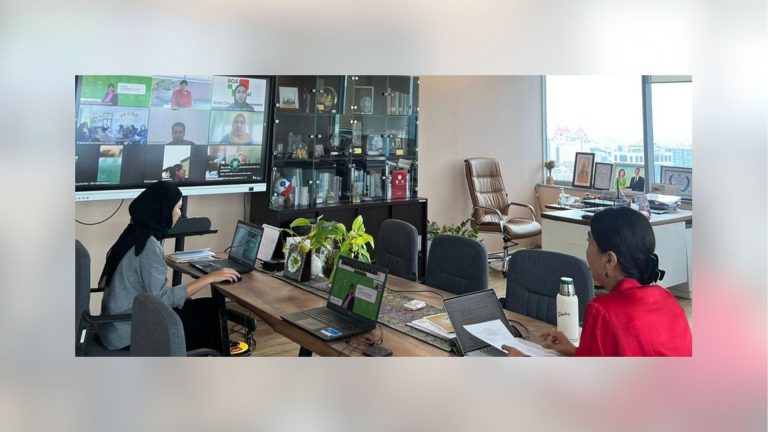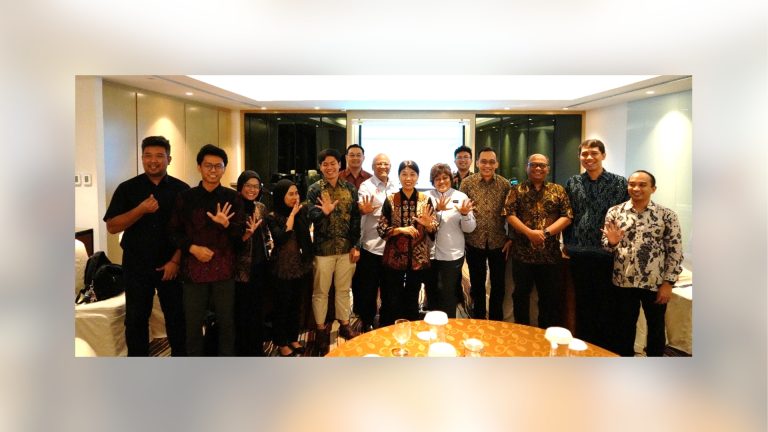19 March 2021 | UCLG ASPAC, under the framework of the Climate Resilient and Inclusive Cities (CRIC) programme, invited Indonesian city representatives to a one-day Workshop on Coastal Areas and Climate Adaptation for better integration of coastal defence in anticipating the impact of climate change. In the context of Indonesia, this issue is relevant and important considering there are many coastal regions that are below sea level and, thus, vulnerable to disasters and climate change. This workshop presented experiences from European, Indonesian and Indian experts and insights into how well integrated coastal defence are in meeting nowadays’ needs and those of the future.
Knowledge Exchange
The event allowed Mr. Marc Igigabel, from Cerema, the Centre for Studies and Expertise on Risks, the Environment, Mobility and Urban planning, to discuss the fundamentals behind coastal protection, climate change and how those challenges and hazards can be approached to better adapt coastlines.
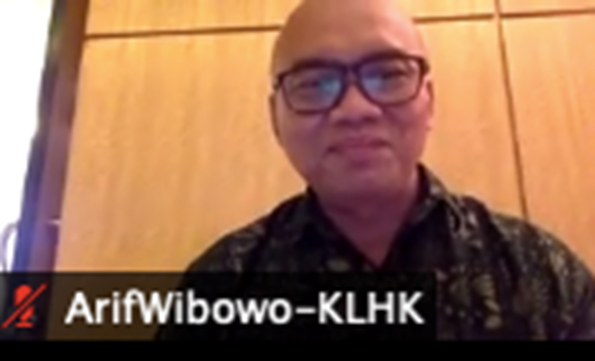
Mr. Arif Wibowo, the Indonesia Ministry of Environment and Forestry’s Deputy Director for Vulnerability Identification and Assessment, underlined the importance of national guidelines in place and the provision of technical guidelines through capacity building and tools. Mr. Arif Wibowo shared an Indonesian context of climate adaptation stressing the need for translating high-level commitment into policies, incentive mechanism to enhance climate action at a community level and promote climate literacy. He acknowledged that several projects are already in place at the local level and welcomed the insights presented. He also underlined the crucial role that early warning systems and climate mitigation will have regarding coastal protection. In this discussion, he was joined by the University of Gustave Eiffel’s Professor Youssef Diab who contextualised the issues in several international settings, such as New Orleans, and indicated how the approach can be adapted to the Indonesian coastlines.
Local Enthusiasm and Responses
In this event, city representatives from all around Indonesia were allowed to consult further. Mr. Alfan Alfian from the Environmental Agency of Kendari and Mr. M. Fikri, the Head of Mataram Environmental Agency had the opportunity to ask very pertinent questions related to the best practices regarding the adaptation of integrated coastal protection in tropical countries. Other attendees also used the opportunity to discuss challenges faced by local governments and encountered by the islands.
While not all of the localities are exposed to coastal disasters threats, some solutions mentioned by the experts can be adapted to different settings to tackle local issues. Solutions can for example be adapted to riverbeds to prevent damages to structures located on the riversides.
UCLG ASPAC’s Secretary General Dr. Bernadia Irawati Tjandradewi and President of Pilot4Dev Professor Isabelle Milbert delivered the opening remarks in this two-hour-workshop. Dr. Bernadia emphasised what CRIC could offer to help cities tackle climate change. “Through CRIC, we will deliver Climate Action Plan training this year. This training is a concrete measure to build the capacity of local governments to reduce vulnerabilities and increase adaptive capacity,” she said.
CLICK to re-watch the workshop.








